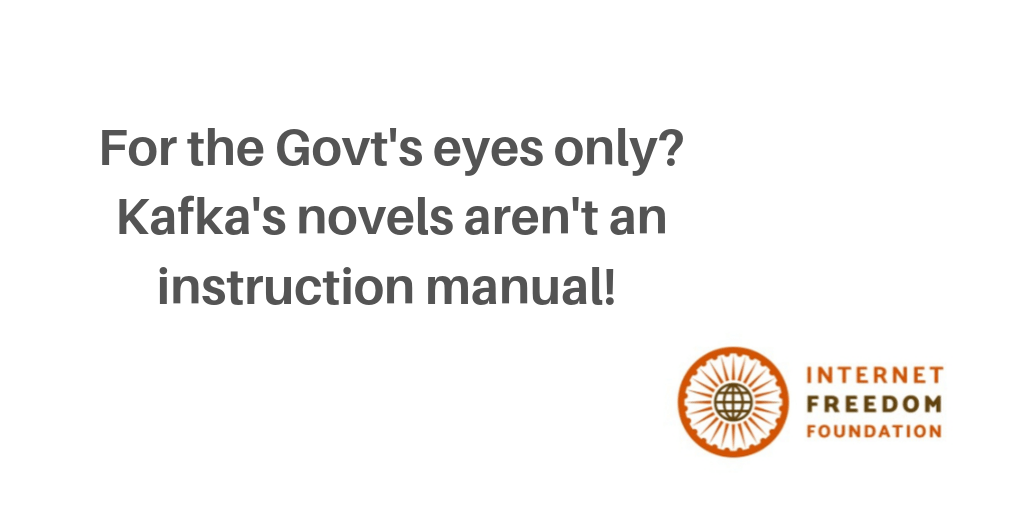
Highlights
- Background: Anuradha Bhasin, the Executive Editor of Kashmir Times had filed a petition before the Supreme Court challenging the constitutionality of the communication shutdown in Kashmir. Two journalistic bodies- Foundation for Media Professionals and Indian Journalists Union- had intervened in the case to support press freedom in Kashmir.
- Secret Orders: At today's hearing, the Government cited national security concerns in response to the Petitioner's and the Intervenors' demand for disclosure of orders issued under the Telecom Suspension Rules. However, the Court has directed the Government to either produce the orders or file an affidavit stating why these orders must be kept secret.
Government files vague and conjecture filled response
At the previous hearing on 1 October 2019, the State Government had filed its response in court, and the Central Government filed a brief response endorsing the stance taken by the State Government on the same day.
On the legal basis of the communication shutdown, the State Government's response merely stated that "in view of the apprehension of misuse of data services, which is likely to cause deterioration in law and order situation requests were made, to service providers, from time to time, keeping in mind different zones/areas as per the threat perception prevailing at that particular time, by Inspector General of Police, Kashmir Zone, Srinagar, which were confirmed by Principal Secretary to Government of Jammu and Kashmir, Home Department in terms of Rule 2(1), first proviso, of the Temporary Suspension of Telecom Services (Public Emergency or Public Safety) Rules, 2017."
As evident, the response filed was extremely vague and relied on conjectures instead of providing concrete facts and figures which would enable the court to evaluate the "reasonableness" and "proportionality" of the communication shutdown under the Constitution.
Petitioner and Intervenors seek production of actual orders
To prevent further delay in effective adjudication of the case, the Petitioner and the Intervenors sought production of actual orders issued under the Telecom Suspension Rules. These orders are crucial because Rule 2 of the Telecom Suspension Rules requires that any order issued by the competent authority must contain reasons. In addition to the orders, the Intervenors also sought information about whether these orders have been reviewed and approved by a State Level Review Committee in accordance with the Rules.
During today's hearing, the Solicitor General strongly objected to the orders being disclosed to the Petitioner and the Intervenors citing "national security" concerns. In response, Mr. Dushyant Dave, who is the Senior Advocate appearing for the Foundation for Media Professionals, said that unless the government produces the orders, the Petitioner and the Intervenors are being forced to argue this case with their hands tied behind their back. Mr. Huzefa Ahmadi, who is the Senior Advocate appearing for the Indian Journalists Union, emphasized that the Government cannot make an omnibus statement and it must demonstrate how disclosure of each order can threaten national security.
After hearing both sides, the bench granted the Government time till the next hearing to file a sur-rejoinder. The government will have to either produce the orders at the next date of hearing or file an affidavit explaining why these orders cannot be disclosed. The next date of hearing in the case is 24 October 2019.
Secret orders undermine Rule of Law
Transparency in governance is the bedrock of Rule of Law. The Indian Supreme Court recognized this as early as 1951 when Vivian Bose J. noted "The thought that a decision reached in the secret recesses of a chamber to which the public have no access and to which even their accredited representatives have no access and of which they can normally know nothing, can nevertheless affect their lives, liberty and property by the mere passing of a Resolution without anything more is abhorrent to civilised man."
At the next hearing, we sincerely hope the present Supreme Court will continue this tradition of requiring the government to adopt a culture of justification rather than a culture of authority where citizens are not allowed to demand concrete reasons for violation of their rights. As always, we will keep you updated about how the case progresses.
Important Documents
- Application to bring on record additional documents filed by FMP (link)
- Application for production of orders filed by FMP (link)
- Affidavit filed by the State of Jammu and Kashmir (link)
